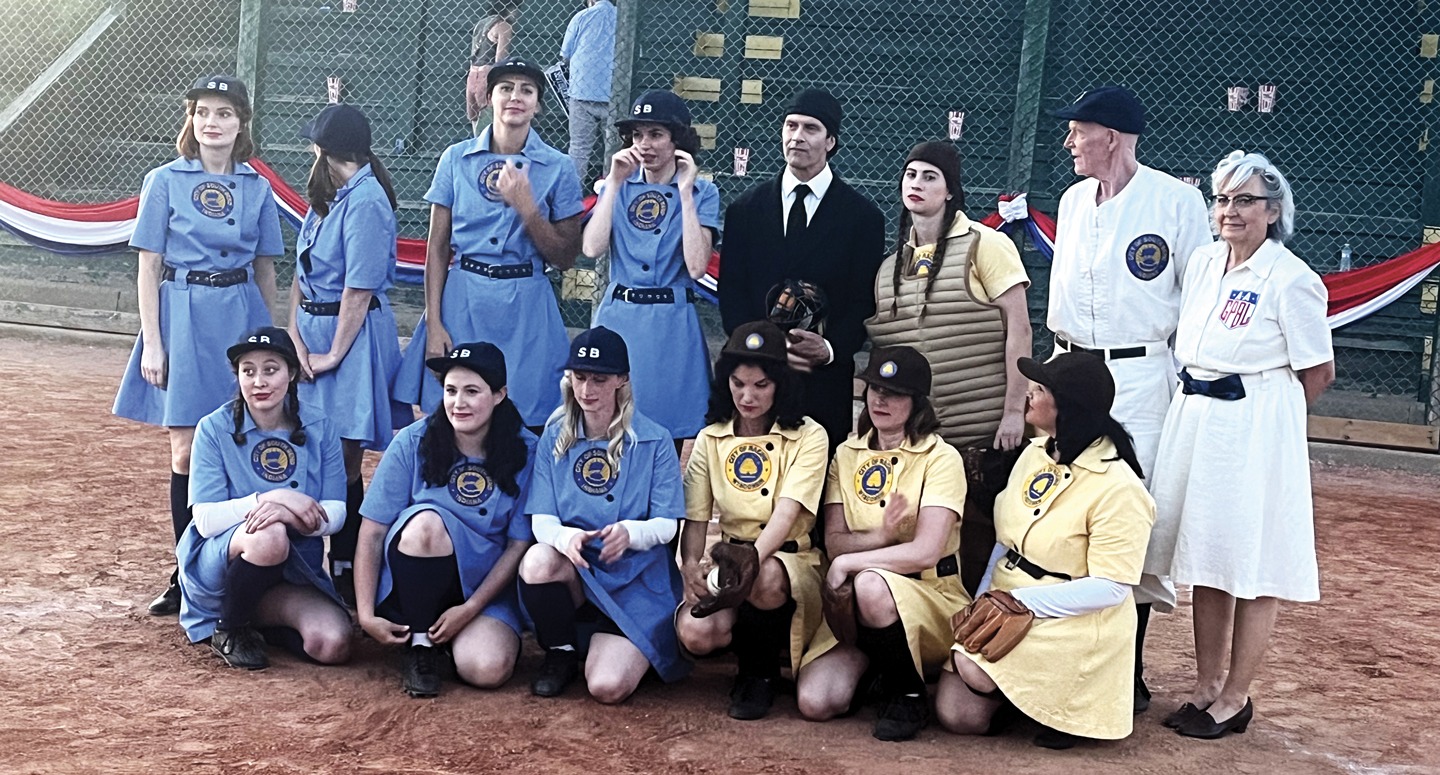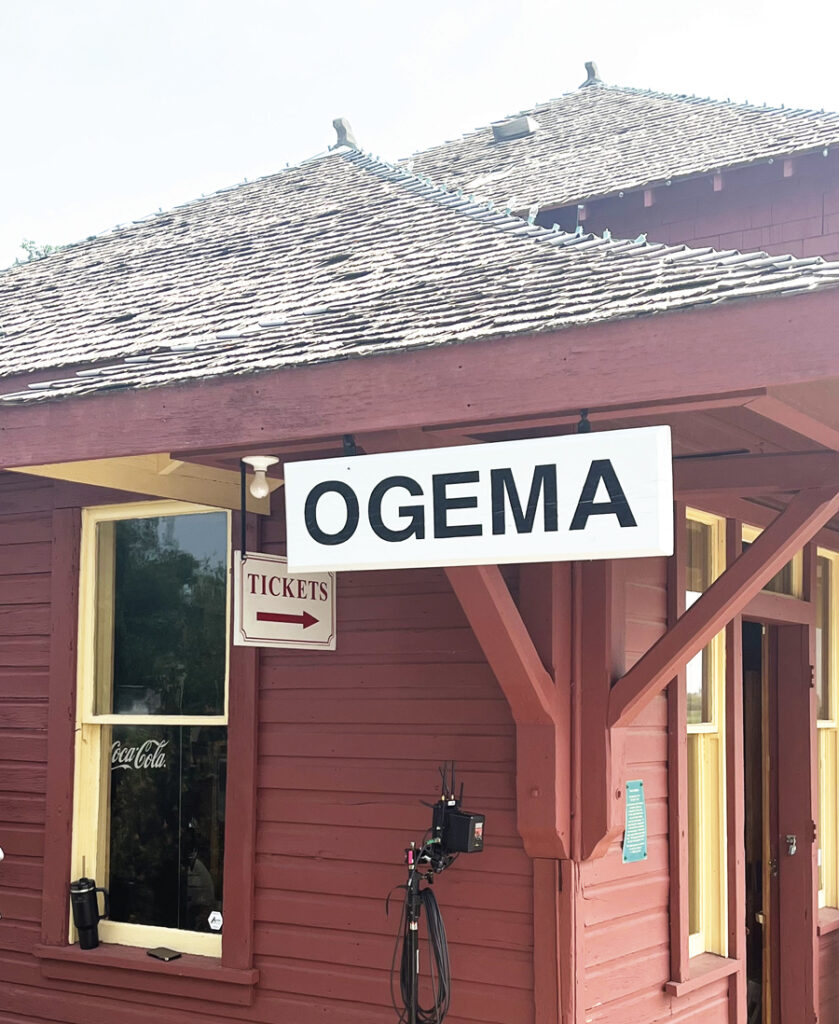A Small Saskatchewan Town’s Heritage Minute Close-up

Anthony Wilson-Smith
With the exception of two sharp right-hand turns, the drive from the Saskatchewan provincial capital of Regina to Ogema, (pop. 403, pronounced oh-gi-MAH) is notable mostly for its sameness: 116 km of dead-straight travel across flat Prairie fields, punctuated only by the occasional grain mill and a few isolated homesteads. The farther you get from the city, the more likely that those homesteads are abandoned — the owners often simply walked away. By night, the darkness is so complete, that the flashing red lights marking the two stop signs on the trip are visible from more than five km away as the only illumination in land or sky.
All of which makes the bustling community of Ogema all the more remarkable as it stands in sharp contrast to the dozens of similar communities across the province that withered and died in recent decades. I was there recently in my role as CEO of Historica Canada, the non-profit organization that produces the Heritage Minutes. Along with several colleagues and a film production team, we were there to shoot a Minute about Mary Bonnie Baker, the feisty, iconic 1940s and 50s professional baseball catcher. (Among other things, she was the inspiration for the character played by Geena Davis in the 1993 Tom Hanks/Madonna picture, A League of Their Own.)
Although Baker was from Regina, we shot in Ogema because the town, in the description of our advance location scout, has it all. That includes a century-old baseball field with manicured infield and original grandstand (currently being restored), a perfectly preserved and fully functional 1930s train station – and train; a Sports Hall of Fame stocked with all manner of memorabilia; and a Main St. collection of vintage buildings, each with a history of its own, including a non-functioning but otherwise fully-equipped time-warp BA gas station (the brand was bought out by Gulf and ceased to exist in 1965).
For an organization like ours, looking to shoot a period piece, this is the stuff on which dreams are made – the best one-stop location shooting I’ve experienced in my involvement in more than 20 years’ worth of Minutes. Add in a highly-skilled film production team, drawn largely from Saskatchewan and Alberta, and a provincial government that now provides financial subsidies for shoots, and Ogema seems ripe for liftoff as a regular destination for future productions by companies coming from far and wide.
There are many reasons why Ogema not only survives, but thrives, despite the same challenges that put an end to similar towns. Those include a spirit of collective innovation, determination, and a willingness to use every means at the town’s disposal to attract newcomers and reverse the age-old trend of losing youth to bigger communities at the first opportunity. Says Kyle Leonard, a town councillor and insurance broker who lived in Regina for years before returning home: “It became possible for people like me to come back to the place we love and make a living here.”
In 112 years of existence, Ogema has seen its share of formidable challenges. The original intent was to call it ‘Omega’, the Greek word for ‘end,’ marking its status as the last stop on the Canadian Pacific line. But the name was already taken by another town, so locals settled on Ogema, an Anishinaabemowin (Ojibwe) word meaning “chief”. At inception, a local census showed 540 residents – as big as the town would ever get. Over time, two world wars, the 1919 Spanish flu, and a series of recessions chipped away. By the late years of the last century, the population had dropped to the low-300s. Then Sask Power, the provincial agency that was a big employer, shuttered its office at about the same time as the wheat elevator near town also closed. Young families wanting to stay faced the loss of two major sources of jobs. “We realized that the future of the local school was at stake – and if we lost the school, we would lose the community,” says Carol Peterson, the town’s mayor.

Members of the town council and remaining business community began searching for a big-ticket employer to fill the void. They found their savior in Big Sky Farms, based in Humboldt, SK – one of the country’s largest hog farm operations. The type of jobs the company brought with it were nothing like those that had left, so the exodus of young families continued. But newcomers arrived – many of them new Canadians. Today, the local school has 125 students and roughly half are of Filipino origin, the children of those new Canadian arrivals. That is a modern take on an old tradition in a province founded and populated by people from ‘away’ who came to take advantage of the homesteads offered.
That rebirth of sorts encouraged others to come – or come home. One was Marco di Michele, from Naples, Italy, who married a local woman (Tracey) and moved to Canada. In 2013, they opened Solo Italia Fine Pasta Inc. Today, in addition to serving locals at their Main St. restaurant, Marco makes hundreds of his Napoli-style pizzas every Thursday and Friday, flash-freezes them, and ships them to communities across the province for sale in trucks he acquired for that purpose. The couple employ a dozen people. In 2020, Adam Mazer, who grew up in the community before going to culinary school and working at restaurants in Regina, felt the pull of his hometown. He came back with his wife, Kaitlyn – an accomplished baker – and their children. They opened Bud’s BBQ, which now pulls in visitors from other communities including Regina, who make the trip specifically to bring home Adam’s BBQ products, beans and Kaitlyn’s pastry. They employ four people.
The next big step is to further leverage the heritage buildings, rail station and train that were so immaculately maintained over the years, more out of love than any specific design. The train, running on a limited length of track, does service on weekends as a tourist attraction, offering everything from wine and micro-brewery tastings to Harry Potter-themed trips. The ball field, still the site of games between Ogema teams and neighbouring communities, sits alongside a modern community centre that includes a hockey/curling rink, swimming pool, golf course, community rooms and snack bar. In the upcoming Heritage Minute, the train station will double for the one that took Baker on her first leg to the United States to play ball, and the park, with locals serving as spectators, will become one of the mid-sized town fields in the US where the All-American Girls Professional Baseball League (AAGPBL) played from its start in 1943 till its 1954 demise.
Challenges remain. A big one is medical care: the nearest doctor is in Weyburn, 81 km away – or Regina. The best ‘advice’ for locals on the medical front, says Mayor Peterson, is: ‘don’t get sick.’ There is also the continuing need for upkeep of the same aging structures that are the town’s stock-in-trade: the grandstand needs about $150,000 in repairs to prevent its decaying base from collapse while keeping its appearance. While the community is united in support, the non-profit Ogema Grandstand Restoration Project (which can be found on Facebook) will depend heavily on outside donations to achieve its goal.
Even more than its buildings, Ogema is characterized by the pride locals take in their community and achievements. We arrived at the community centre to begin our shoot and were greeted by a choice of dozens of baked goods prepared by locals. Several hundred locals showed up to serve as extras in crowd scenes. That process can become much less interesting after as many as a dozen takes of the same scene – especially in the 30-degree weather that prevailed throughout the shoot – but everyone stayed in place. When the first day’s shoot ended, and the cast and production team gathered for a photo to mark the occasion, there was the same level of applause as would greet a walk-off, game-winning home run.
For a visitor from a big city, at a time when there can seem more wrong than right in Canada and beyond, it was a reminder that the qualities that built this country remain in evidence today – and the most interesting stories aren’t always the ones that draw the biggest headlines, or most online clicks. The Minute will salute Baker, a woman who was told all the things she couldn’t do, and just went ahead and did them. Ogema, stand-in for key moments in her life, is the same: against formidable odds, it makes a brighter future by turning to its past. We were there to shoot Baker’s story, and are excited about how it will be received when we launch it in October. As it turned out, the backdrop is every bit as wonderful.
Contributing Writer Anthony Wilson-Smith is President and CEO of Historica Canada and former editor-in-chief of Maclean’s.
